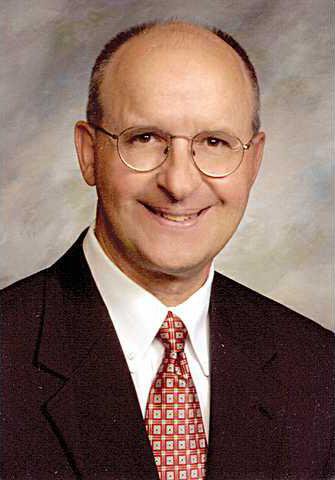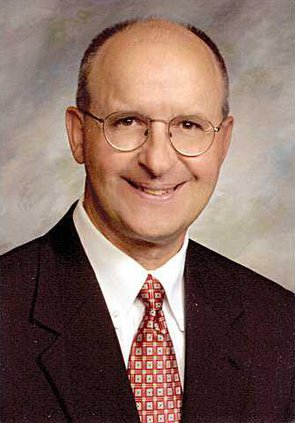Area superintendents applaud NCLB waiver
BY STAFF and WIRE REPORTS
All area school superintendents were in agreement this week that the waiver the state of Kansas has received for No Child Left Behind mandate is a good thing, allowing for individualized growth.
“It’s a good deal. It’s something to need to have so all students will continue to learn,” said Bill Lowry, superintendent of USD 431. “Every child is capable of learning. We need to continue to help every student learn to their abilities.”
“This waiver allows Kansas to much more effectively measure and account for student achievement,” said Ben Jacobs, superintendent of USD 355. “I’m excited that we are recognizing student achievement as a nuanced, intricate subject, as opposed to a one-size-fits-all absolute cut score. This will benefit and acknowledge the efforts of all kids in Kansas.”
“It allows us to use commonsense,” said Steve Woolf, superintendent of USD 112. “It allows us to use more than one test to measure growth.”
Lowry said there has been some good from NCLB in that there are more individualized strategies for different ways of learning.
With the start of school a matter of weeks away, Kansas educators are breathing a little easier now. The U.S. Department of Education Thursday approved state’s request for a waiver from portions of the controversial federal No Child Left Behind law.
The feds’ action grants more flexibility in meeting some of the more challenging provisions of NCLB. With the approval, Kansas schools’ success shifts from being gauged solely annual state assessment results to drawing on student improvement on several measures, such as ACT scores and vocational tests. The state tests would be in the mix as well.
“We will look at the improvement of each child on more measures than just one,” said Tom Vernon, superintendent of Great Bend’s Unified School District 428. This will give a more accurate profile of a kid’s performance.
“I’m extremely pleased with the plan that has been advanced with the approval of our state’s flexibility request,” said Education Commissioner Dr. Diane DeBacker in a Kansas Department of Education news release. “An accountability system based on student growth and multiple measures is a key component of our waiver and I believe it will result in a far more meaningful assessment of the progress and success of Kansas schools.”
Under the stringent NCLB, a child’s knowledge was tested by a single test on a single day. “This is just foolish,” Vernon said.
“This was welcome,” Vernon said of the waiver. “This gets rid of the most unrealistic parts of NCLB.”
Kansas joined Arizona, Michigan, Mississippi, Oregon, South Carolina and Washington, D.C. as the newest batch of waiver recipients. In all, 32 states have now been granted waivers, and four have outstanding requests. All told, 32 states have now been granted waivers, and four have outstanding requests.
The act was signed into law by President George W. Bush in January 2002 following bipartisan support in Congress. Among the provisions, it called for a incremental improvement the percentage of all students reaching proficiency in math and reading until they all reached 100 percent proficiency by 2014.
But, even from the beginning, educators knew it was doomed and there was no way all students would reach the 100 percent benchmark. “Everybody knew that by some point, NCLB would implode, we just didn’t know when,” Vernon said.
Kansas first submitted its application for a waiver last February after the Obama administration announced an initiative to grant states waivers if they demonstrated movement toward a number of education reforms. The waiver was sought to escape the narrowly defined accountability system.
It was rejected at first, Vernon said. “The feds wanted to make sure we were still accountable for all students.” They also wanted teacher and administrator evaluations tied to student performance.
So, the Kansas plan calls for appointing a commission to identify the most effective means of making the link and building that into the existing Kansas Educator Evaluation Protocol.
This KEEP will be a model that districts may adopt, or they may build their own system that incorporates the state guidelines, including the tie to student achievement. Vernon said USD 428 already has a plan in place.
The state will pilot KEEP in 2013-2014 and implement it in 2014-2015. The state’s waiver is contingent on this implementation.
The new accountability system will be in place for the upcoming 2012-2013 school year. The NCLB-era Adequate Yearly Progress will still be used for the 2011-2012 school year. AYP results for the recently completed school year will be included in report cards which will be released in September.
“The review process took a little longer than we had anticipated, but I believe we gained a stronger plan through the process,” DeBacker said. “It was important to me and to our State Board of Education that the integrity of the Kansas plan was preserved, and I believe it has been. I’m looking forward to sharing the details with school districts and working toward implementation.”
At a national level
“Today, Kansas obtained some much needed freedom from the burdensome requirements of No Child Left Behind,” Sen. Jerry Moran said. “I commend our state’s education officials for their hard work and determination in negotiating with the U.S. Department of Education to obtain this necessary flexibility for our schools.”
The junior Republican senator said he opposed passage of NCLB in 2001 because a “one-size-fits-all” federally-mandated approach to education
“While our state obtained some relief today, I remain concerned by the Department’s process of dangling relief from federal mandates in front of states in exchange for agreeing to adopt Administration policies,”he said. “This undue pressure could lead to an administrative rewrite of the statute that is even further top-down mandated than current law.
“Kansas schools have no problem being held accountable; they simply ask that the federal government afford them sufficient flexibility to tailor education plans to the unique needs of their students.”
Moran believes the overhaul of NCLB should be a priority for Congress, but neither chamber currently plans floor debate on reauthorization measures. The Senate bill, which the Health, Education, Labor and Pensions Committee approved in October 2011, still has not been officially reported out of committee despite having bipartisan backing. The House of Representatives’ Education and Workforce Committee also approved two smaller bills in March 2011.





